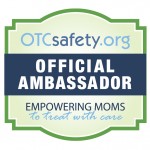 Meningitis is a scary illness for both parents and doctors alike.
Meningitis is a scary illness for both parents and doctors alike.
The symptoms and severity of meningitis can vary from mild, self -resolving to serious and life threatening, requiring hospitalization and IV antibiotics. Meningitis can be a result of a common viral infection or a result of a bacterial infection. These bacteria caused meningitis cases are the ones we worry most about in teens.
Recently, a 12 year old previously healthy girl in Boston passed away from what doctors believe is a case of bacterial meningitis. While still very rare in the US, her rapid deterioration and ultimate death is why parents and healthcare providers must always be on high alert should a child present with symptoms of meningitis.
So, no need for panic, but definitely a need to be in the know about bacterial meningitis in tweens, teens, and college students.
What is bacterial meningitis?
Meningitis is the inflammation of the membranes that cover the brain and spinal cord. Bacterial meningitis is relatively rare, occurring at the rate of 1 in 100,00. Still, the seriousness of this illness is what makes it an important one to know about. In teens, the two bacteria responsible for most cases of meningitis are Streptococcus Pneumoniae and Neiseria Meningitides (Pneumococcal and Meningococcal respectively).
Why are teens at increased risk?
Teens and young adults between the ages of 15-21 are most at risk. This is believed to be related to close living quarters, especially for new college freshman living in the dorms. Also, teens typically do not think twice about sharing water bottles or eating utensils. Bacteria is easily spread by droplets from coughing and sneezing and transferred directly through saliva from kissing.
What are the symptoms of bacterial meningitis?
Symptoms can be easily mistaken for the flu because your child will have high fever, muscle aches, headaches, and nausea or vomiting. What is different is the headache has a sudden and severe onset. In addition, your child may complain of a sore or stiff neck. Photophobia (sensitivity to light), confusion, lethargy, and seizures are other telltale signs.
The triad of stiff neck, sensitivity to light, and headache should always warrant immediate evaluation of your child by his/her doctor.
In the case of meningococcal meningitis, a rash can develop on your child’s body that looks like flat red/purplish lesions on the lower arms and legs. This is a sign of a very serious and life threatening form of meningitis.
As opposed to bacterial meningitis, viral meningitis is typically more mild and self resolving. Your child’s doctor will have to do a lumbar puncture to test the spinal fluid if meningitis is suspected.
How can it be prevented?
Aside from good hand hygiene and not sharing eating/drinking utensils, the most effective preventive measure is to make sure your teen is up do date on her vaccinations.
Namely, your tween should receive her meningococcal vaccine between 11-12 years of age and receive a booster dose at 16 years old. This booster dose is a new recommendation by the AAP and an important one to provide ongoing protection for your teen against this type of bacterial meningitis.
More ways to decrease your teen’s risk of acquiring bacterial meningitis:
Talk to your teen about abstaining from smoking and drinking. Both of these can weaken the immune system and make their bodies less able to fight off an infection.
Even exposure to second hand smoke can increase your teen’s risk.
Encourage your teen to get 8.5-9.5 hours of sleep per night, eat a balanced diet, and engage in daily physical activity.
Inform them of the dangers of bacterial meningitis and symptoms to watch out for.
Above all, seek immediate treatment for your teen if you are worried about the possibility of meningitis. Prompt diagnosis and treatment will help reduce the likelihood that your child suffers any lifelong consequences such as hearing or speech loss, seizures, vision loss, or any other permanent brain damage.
What questions do you have about meningitis, vaccines, and prevention?









This is a comment from Lynn Bozof, President of the National Meningitis Association who also lost a son to meningitis at the age of 20. I’m posting her comment for her as my blog wasn’t behaving too nicely the day of this post and ate her comment.
“I’ve been following the news from Boston, and whenever I hear about a case, and my heart goes out to this family and to the other families recently affected by meningococcal disease. I want to thank you, Dr. Arca, for your thoughtful and informative post. I, too, lost a child to this disease. I didn’t know at the time that a vaccine could have saved my son’s life. There is no greater tragedy than that of losing a child. Since that time, I have dedicated my life to raising awareness about this disease through my work with the National Meningitis Association. Thank you again for educating families about the symptoms of this disease and the importance of prevention through vaccination.”